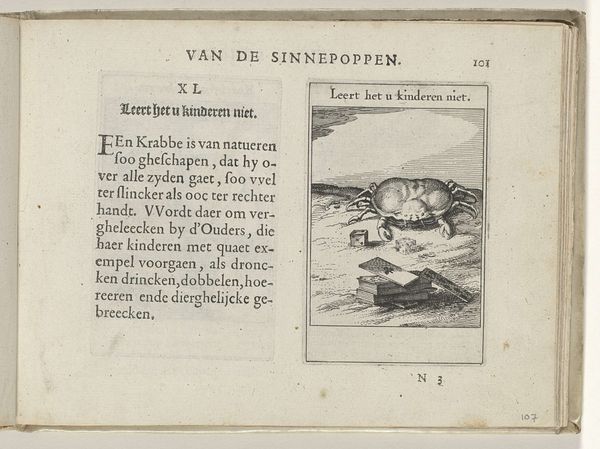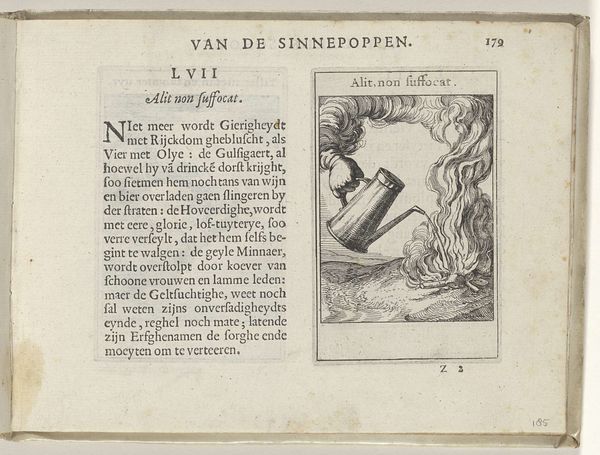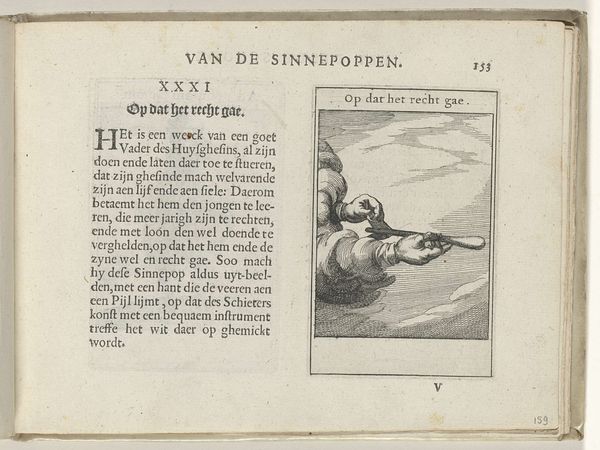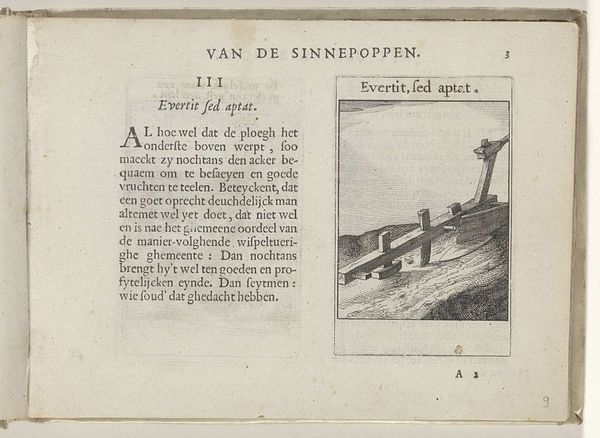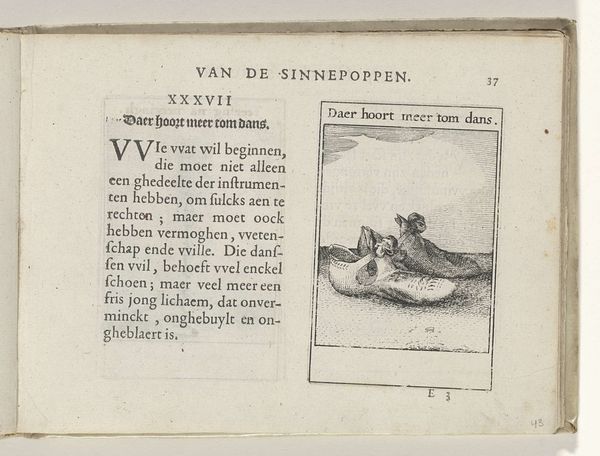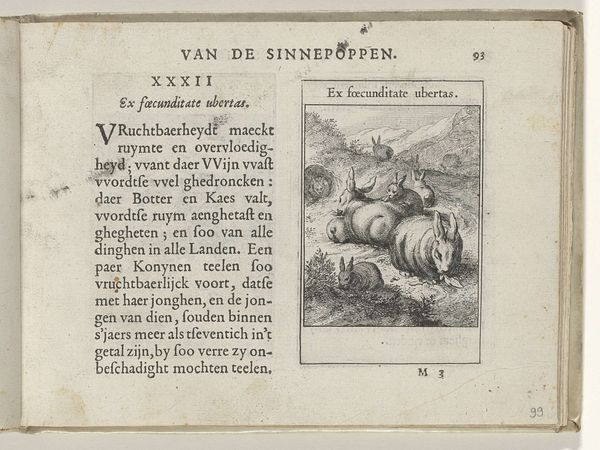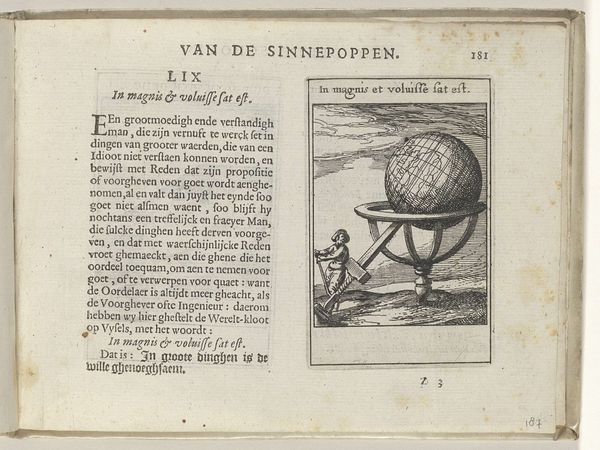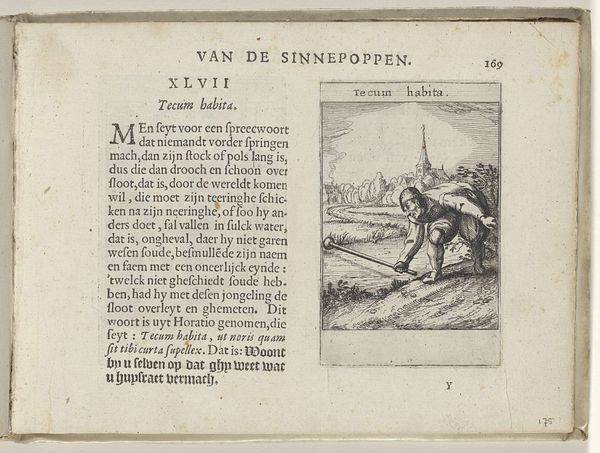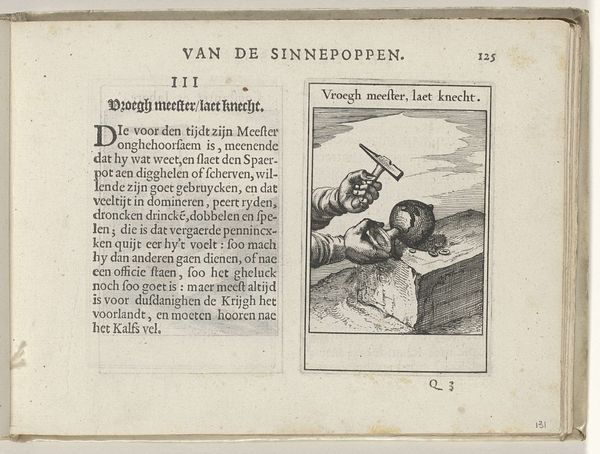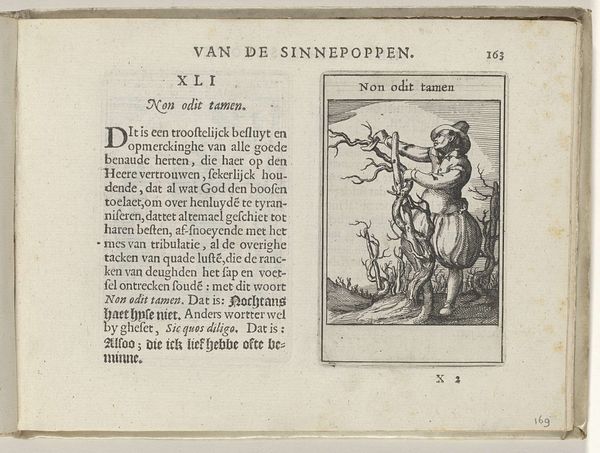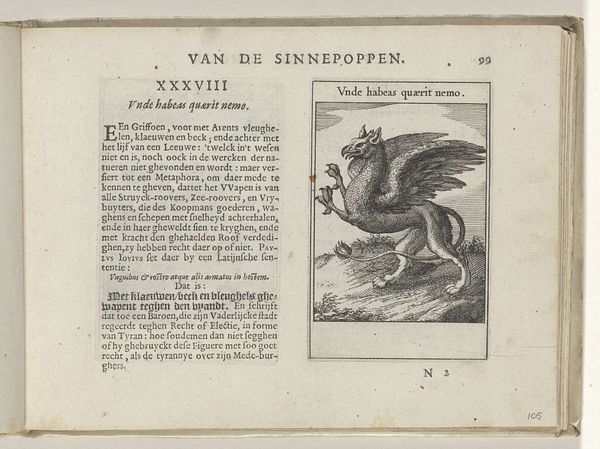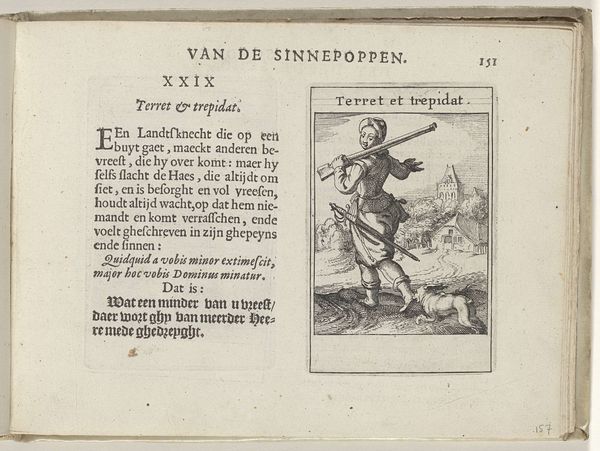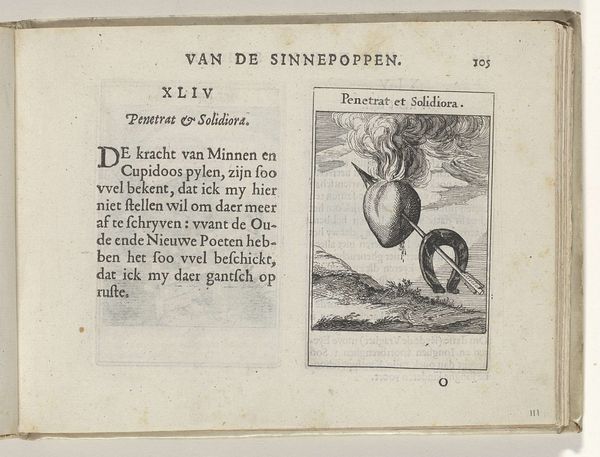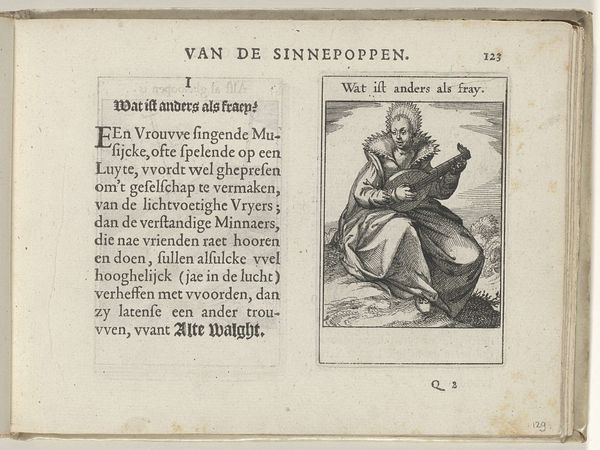
print, engraving
#
baroque
# print
#
history-painting
#
engraving
Dimensions: height 137 mm, width 188 mm, height 95 mm, width 60 mm
Copyright: Rijks Museum: Open Domain
Curator: What a peculiar image—it feels like gazing into an old riddle book, doesn't it? This engraving, created in 1614 by Roemer Visscher, is titled "LII Vis mea de nihilo est," which, translated from Latin, means "My strength is from nothing." What jumps out at you? Editor: Initially, it’s this sort of paradoxical visual. A cannon, grounded on what appears to be a barren patch of land, juxtaposed with a block of dense text… There’s an immediate sense of imposed authority. The Latin phrase echoes themes of power emerging from emptiness, which brings into focus ideas surrounding colonialism. The canon is often used as the object that facilitates the expansion of colonial states through violence. Curator: You’ve immediately tapped into something powerful there. Visscher offers this visual puzzle alongside the enigma in both Latin and Dutch, and further implies that Vulcan, Nature and Minerva somehow conspire to produce this. The cannon itself is rendered so meticulously, almost lovingly—one can practically hear the echoes of its boom… it's troubling, that blend of aesthetic appreciation with the implied violence. Editor: Right, the details invite scrutiny—the perfectly turned wheel, the suggestion of distant skies. And Visscher uses text to claim art comes to be with the power of Vulcan, Nature and Minerva but then also describes the nature of “nothingness”, suggesting this power stems from nihility itself. This raises some questions surrounding the ethical issues concerning from where artistry and creative influence stems. Is Visscher interrogating the creation of art and ingenuity from violence, “nothingness?” Curator: It also seems the power dynamic is very literal. The power being in the cannon, ready to use force in exchange for colonization of Indigenous people and resources… Editor: Exactly, and framing it with “strength from nothingness” and alluding to higher powers allows colonizers to believe their conquest is divinely sanctioned. It gives their destruction a clean origin—*nothing*, which is the absence of everything else and seemingly justifies it. Visscher may be trying to subtly unpack this rationale. Curator: So, through a deceptively simple engraving of a cannon accompanied by a clever little verse, we confront the brutal ironies of power and creation, where strength claims to arise from nothingness. Editor: Precisely. An image that, once situated within its socio-historical context, prompts profound reflection on how empires justified exploitation, framing violence not as an end but as an inexorable element for creative ingenuity, all the way down to art making itself.
Comments
No comments
Be the first to comment and join the conversation on the ultimate creative platform.
